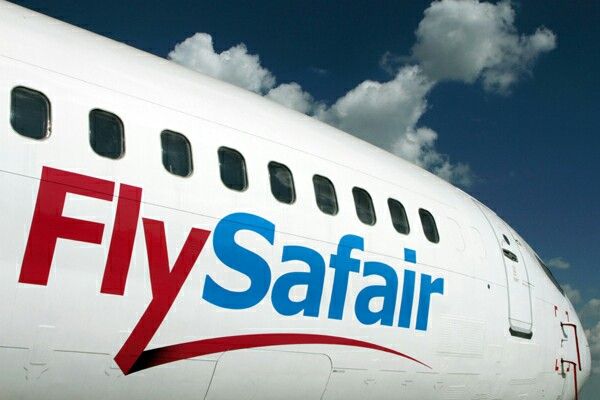Business
FlySafair Responds to Ownership Compliance Ruling, Prioritizes Service Continuity

FlySafair Addresses Ownership Compliance Ruling, Ensures Uninterrupted Domestic Service
South African airline FlySafair has responded to recent findings by the International Air Services Licensing Council (IASC) regarding its ownership structure, which currently sees a majority stake held by Ireland-based ASL Aviation Holdings. The IASC’s ruling, issued in early November, highlighted FlySafair’s non-compliance with the South African regulation that caps foreign ownership in local airlines at 25%. ASL Aviation Holdings’ 74.86% stake, in particular, has drawn scrutiny, potentially impacting FlySafair’s international operations.
Domestic Flights Unaffected
FlySafair clarified that while the ruling affects its international services, its domestic flights remain unaffected as they fall under a different licensing framework. Passengers on FlySafair’s local routes can expect uninterrupted service, as the IASC’s focus is solely on the airline’s international operations.
Regulatory Compliance and Response
The compliance inquiry initially arose in October 2022 following complaints from local competitors Airlink and LIFT (operated by Global Aviation). These complaints questioned FlySafair’s adherence to local regulations, particularly after the airline restructured its shareholding in 2019 without seeking a license amendment.
In response to the IASC ruling, FlySafair emphasized its commitment to transparency and regulatory compliance, filing an urgent interdict application to prevent disruptions for its international customers. The airline expressed confidence in its operational standards and noted ongoing engagement with regulatory authorities to ensure continuity.
The Impact of Competition on Airfares
FlySafair underscored the importance of competition in the South African aviation sector, particularly noting the significant fare reductions it has driven on the Johannesburg-to-Harare route. The airline cited a 50% decrease in fares during peak periods as a positive impact of increased seat availability, demonstrating how competition benefits both local and international travellers.
Competitors’ Reactions
Some competitors have raised objections to FlySafair’s interdict application, arguing it poses a matter of competitive interest. However, FlySafair stated it remains focused on minimizing traveller disruptions, especially with rising demand over the summer holiday season.
FlySafair’s commitment to service transparency and continuity remains central as it works closely with authorities to resolve the regulatory compliance issue swiftly and fairly, striving to maintain affordable travel options for South Africans.















